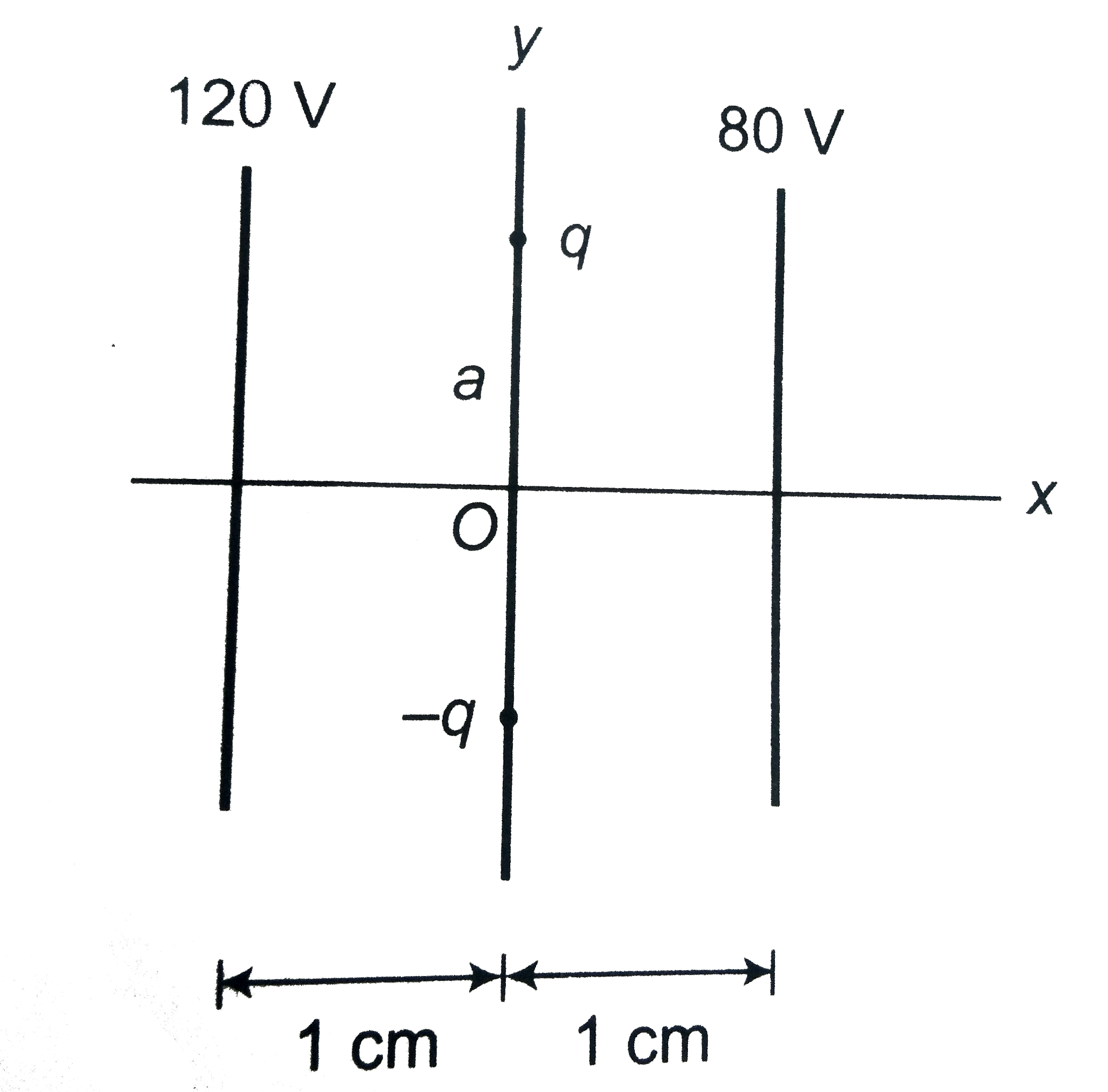The electric potential decreases unifromly from 120 V to 80 V as one moves on the x-axis from x=-1 cm to x=+1 cm. The electric field at the origin
(i) only
(ii),(iii)
(ii),(iii),(iv)
(iii),(iv)
The correct Answer is:2

It may be that charges of same magnitude but opposite sign may have placed on y-axis in such a manner that potential due to them on x-axis is zero, but they will produce electric field in addition to 120−802=20V/cm
SO field at origin may be 20V/cm or greater than 20V/cm.
Topper's Solved these Questions
Similar Questions
The electric potential decreases Wliforrnly from 100V to 50V as one moves on the y-axis from y = -Im toy= + l m. The electric field at the origin :
View SolutionThe electric potential decreases uniformly from 100V to 50V as one moves along the x-axis from x=0 to x=5m. The electric field at x=2m must be equal to 10V/m. Is this statement true or false.
View Solution
Knowledge Check
The electric potential decreases uniformly from 180V to 20V as one moves on the X-axis from x=−2cm to x=+2cm. The electric field at the origin:
Amust be equal to 40 V/cmBmay be equal to 40 V/cmCmay be less than 30 V/mDmay be less than 40 V/cmThe gravitational potential changes uniformly from -20 j/kg to -40 J/kg as one moves along x-axis from x = -1m to x = +1m. Then gravitational field at origin
Amust be equal to 10 N/kgBmay be equal to 10 N/kgCmay be greater than 10 N/kgDmay be less than 10 N/kgIf on the x - axis electric potential decreases uniform from 60 V to 20 V between x = -2 m to x = +2 m then the magnitude of electric field at the origin
AMust be 10 V/mBMay be greater than 10 V/mCis zeroDis 5 V/m
The electric potential decreases uniformly from V to -V along X-axis in a coordinate system as we moves from a point (−x0,0) to (x0,0), then the electric field at the origin:
View SolutionThe electric potential V at any point x, y, z (all in meters) in space is given by V=4x2 volts. The electric field at the point (1m, 0, 2m) is……………..V/m.
View SolutionThe electric potential V at any point x, y, z in space is given by V=4x2V. The electric field at the point (1, 0, 2) is_________ V m−1.
View SolutionThe electric potential V at any point x, y, z (all in meters) in space is given by V=4x2 volts. The electric field at the point (1m, 0, 2m) is……………..V/m.
View SolutionThe electric potential V at any point x,y,z (all in metre) in space is given by V=4x2 volt. The electric field at the point (1m,0,2m) is ……………Vm.
View Solution
